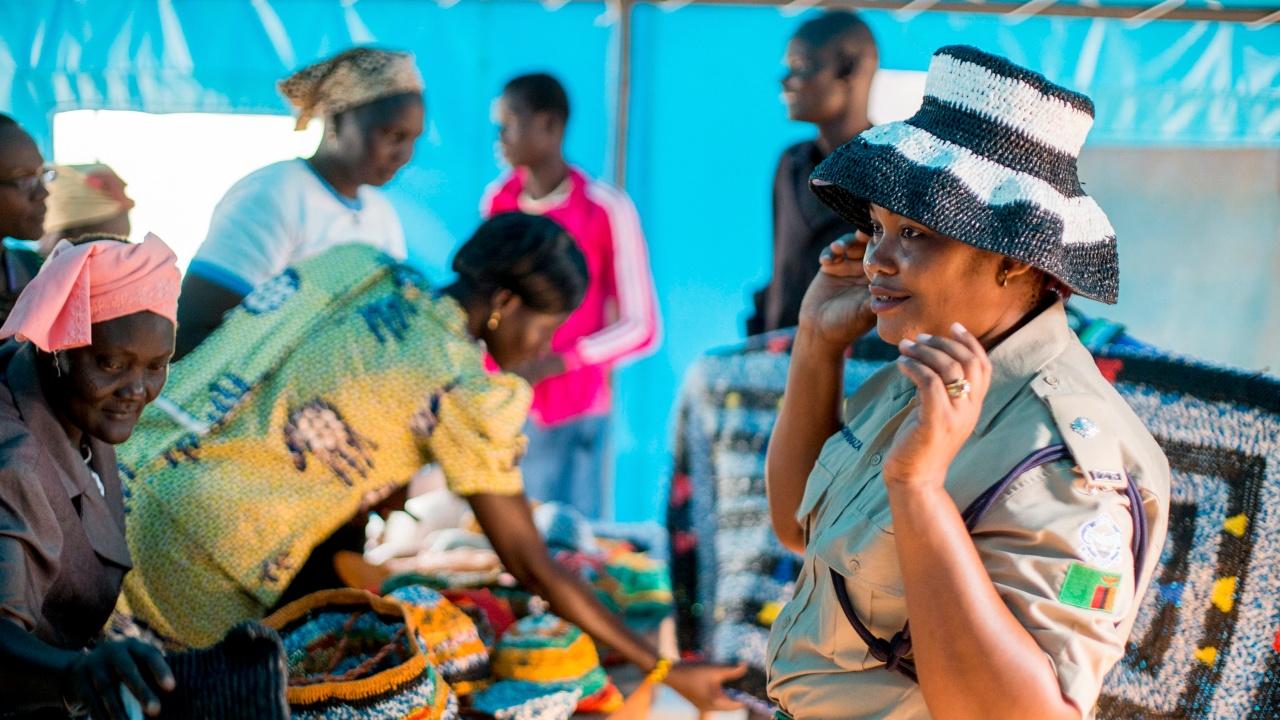Richard Moncrieff says this book gives a provocative insight into women’s life in Boko Haram.
At the end of January 2015 I attended a meeting in Ndjamena in the presence of Moussa Faki, then Chadian Foreign Minister, now head of the African Union Commission (AUC). The subject was Boko Haram, which had just invaded the town on Baga on the Nigerian shores of Lake Chad, threatening the lacustrine economy, just as it had already strangulated Chad’s supply lines through northern Cameroon. The Foreign Minister elicited nods of approval when he described, with a croak in his voice, how Boko Haram had “stolen our children and made monsters of them”. 
This view of Boko Haram as a band of savages is quite widespread among senior officials in the region. Compared to past African insurgencies which have been supported by neighbours (RUF, M23 etc), this near unanimity has been key in the relatively coherent and successful (when measured against narrow battlefield criteria) security response of the Multinational Joint Task Force, in which Chad has played a key role.
Hilary Matfess’s new book on Women in Boko Haram is a challenging and at times provocative reassessment of this view, grounding the group firmly in its local context. The shared view of Boko Haram as a small group of deranged men, whose women are almost entirely victims, may have provided coherence and motivation to the security response since 2015. But it has also provided comparative cover for state failures: “framing the Nigerian military’s (often predatory and abusive) counter-insurgency campaign as the liberation of thousands of Nigerians from an oppressive and backward sect, forces the public to assess the army’s intervention in relation to activities of Boko Haram rather than by any objective criteria” (p. 153). As the book clearly lays out, ignoring the group’s roots in the ‘structural violence’ of northern Nigeria will make successful post conflict reconstruction near impossible.
After a short and largely familiar account of the rise of Boko Haram in the first two chapters, Matfess starts to lay out her agenda most clearly in chapter three: “Being a girl in Nigeria and the gender politics of Boko Haram”. The hardships of female life are laid out with some force; early marriage, domestic violence and lack of educational opportunities. The point is not so much the author’s attempts (p. 54-56) to relate gender inequality to the emergence of conflict, but with the subsequent analysis of female strategies to negotiate restricted freedoms in a highly constrained environment. As has been well covered by other writers on Northern Nigeria and elsewhere, many women have looked to religion for a space of relative autonomy, generating the apparent paradox of female support to sharia law. Boko Haram, the author argues, has clearly been seen by many women as such space.
Drawing on personal interviews with women in transit camps in Nigeria, Matfess highlights interesting features of women’s life within Boko Haram, where the structural violence of northern Nigeria is both reproduced and challenged. Marriage (sometimes with family consent) is important, with the status of the husband determining the status of the wife, as is purdah and child rearing.
But in other ways Boko Haram has created an original space for women, providing them with female companionship while their men are away fighting, with fragments of cosmopolitanism (p. 116-17) and, most intriguingly with some relief from field labour. This interdiction of female field labour seems to be widespread in Boko Haram camps, with the cost displaced onto raiding. In a fascinating section (p. 126-130), Matfess addresses the ways non-combatant women understood their relative ease, made possible through violence they rarely witnessed. Many became very uncomfortable under questioning, claiming ignorance or divine will to avoid a sense of responsibility for their husbands’ actions.

The last substantial chapter takes aim at the national (ie Nigeria, the book unfortunately does not cover any other country affected by Boko Haram) and international response. The author runs through a litany of abuses, deception and bad faith on the part of national authorities and the woefully inadequate international response. Underlying this is an anger at national authorities’ tendency to present the conflict as a heroic struggle against a mindless enemy, when the reality on the ground is anything but. The militarisation of the response, including dangerously blurred lines between security and humanitarian sectors, not only increases a very gendered suffering, but bodes ill for the future.
If this all sounds like a relatively better life for women in Boko Haram than in wider society, pre- or post-conflict, that’s precisely Matfess’ point. Negative aspects of life in Boko Haram, such as intra-group hierarchies (including between women), discipline and violence are covered, but they are not central to the thesis. Many readers will question the appropriateness of such a view. Has Matfess played down Boko Haram violence, perhaps by focusing on certain periods in its development, or because her sources were reluctant to be frank? (That she is alert to the latter issue does not obviate it.) The treatment of suicide bombings will provide the most grist to the critics’ mill: the very short passage devoted to it (p. 132-133) makes little of its inherent brutality.
Such a strongly argued book will inevitably have its flaws and blind spots. Further and perhaps less hurried research is needed into the range of issue it raises. But it is impossible to ignore.
Dr Richard Moncrieff is project director for Central Africa at International Crisis Group and has contributed to several Crisis Group publications on Boko Haram since 2010.






1 Comments